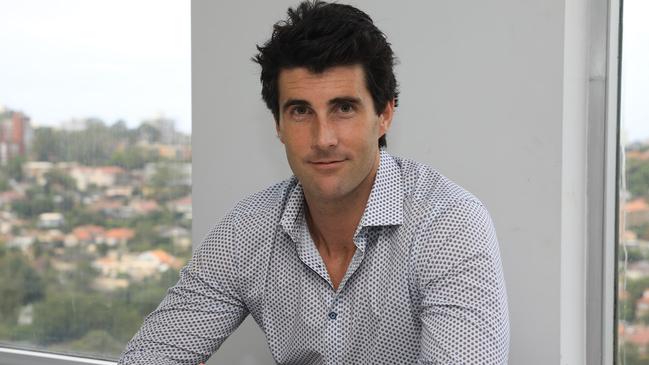Commercial property investment checklist for newcomers
Getting started in commercial property doesn’t have to cost a fortune, but experts say there are potential traps to consider.
Booming house price growth has slowed across Australia, and slipped into reverse in some cities, prompting property investors to consider buying in the commercial space.
But widening your investment horizons this way comes with risks for beginners – along with larger financial returns – property specialists say, so it’s wise to dip a toe in before diving headfirst.
Rethink Investing founder Scott O’Neill says commercial property offers the highest cash flow of all Australian real estate, and today’s high residential prices mean in many places “there is little left in the tank”.
“Many commercial asset types are much earlier on their growth cycles, which also gives you the chance of better capital growth,” he says.
“For example, retail and office is making a comeback and industrial property continues to go from strength to strength.”
You don’t have to spend more than a million bucks when going commercial. Investors can currently buy tiny CBD storage units for less than $30,000, or small shops, offices and warehouses for below $300,000.

O’Neill expects the post-election period to be good for commercial property if the economy and immigration improve.
His top tips for commercial property newbies are:
• Check the competition, to see whether similar properties are being leased nearby.
• Examine demand in an area, with a lot of nearby vacant space increasing the risk your property may sit empty.
• Consider how long it may take to find a new tenant if the current one leaves, and know what comparable rentals in the market are.
• Check the rental and sales square metre comparisons to ensure you don’t pay too much.
• Understand a tenant’s payment history, and speak with local lease managers to discover market trends that may affect your investment.
Author, investor and university lecturer Peter Koulizos says he is currently concerned about buying office and retail property, but likes industrial and logistics investments, which have become stronger during the pandemic.
“Working from home has negatively impacted office property and more buying online has impacted bricks and mortar retail,” he says.
Remember that rising interest rates – likely to begin within months – will impact returns, and commercial property investors can take longer to find tenants after one vacates, Koulizos says.
He says the biggest barrier to entry is the price but there are also positives, with longer-term tenants who also pay expenses such as council and water rates, and higher income returns.
Koulizos suggests newcomers to commercial property first consider real estate investment trusts (REITs), which are listed on the stock exchange and can be traded easily like shares.
“You can get an understanding of commercial property first – to go from zero to (a stand-alone) commercial property I would not encourage,” he says.
Get RARE Properties CEO Rasti Vaibhav says commercial property delivers higher yields and diversification and is suited to sophisticated investors.
“But for those who are still in their wealth acquisition stage, residential property – despite the short-term slowdown – is still a preferred asset class because of the availability of higher leverage and limited downside,” he says.

“Property investments should be considered and evaluated for the long term.
“Short-term movements should not deter wise investors. In the words of Warren Buffett, one should be fearful when others are greedy and greedy when others are fearful.”
Vaibhav says commercial property newcomers should start with their end goal in mind, and treat their investing as a business with a proper team of professionals to help.
“Get your finance right from the start and speak with an investment-savvy mortgage broker who specialises in commercial lending,” he says.
“Commercial property finance is more complex than residential finance, and lenders will generally require a larger deposit to secure these properties.
“Do your market research and study the commercial investment fundamentals. Think about the geographic areas where commercial properties are in high demand and research the core investment foundations such as vacancy rates, population data, and the strength of the local economy.”
WHY CONSIDER COMMERCIAL PROPERTY?
• Higher rental yields of 5-8 per cent.
• Diversification from traditional property and shares.
• More flexible lending arrangements.
• Increasing business confidence.
Source: Rethink Investing.






To join the conversation, please log in. Don't have an account? Register
Join the conversation, you are commenting as Logout